How To Get A Replacement Iphone 5s
Introduction
Use this guide to bring life back to your iPhone 5s with a new battery. If your battery is swollen, take appropriate precautions.
This guide instructs you to remove the front panel assembly; this is intended to prevent damage to the display cables. If you feel comfortable supporting the display carefully while peeling the battery out of the iPhone, skip the display removal and go directly to the battery removal steps.
For optimal performance, after completing this guide, calibrate your newly installed battery: Charge it to 100% and keep charging it for at least two more hours. Then use your iPhone until it shuts off due to low battery. Finally, charge it uninterrupted to 100%.
Video Overview
-
-
Before you proceed, discharge your iPhone battery below 25%. A charged lithium-ion battery can catch fire and/or explode if accidentally punctured.
-
Power off your iPhone before beginning disassembly.
-
Remove the two 3.9 mm Pentalobe screws from either side of Lightning connector.
-
-
-
If your display glass is cracked, keep further breakage contained and prevent bodily harm during your repair by taping the glass.
-
Lay overlapping strips of clear packing tape over the iPhone's display until the whole face is covered.
-
This will keep glass shards contained and provide structural integrity when prying and lifting the display.
-
Wear safety glasses to protect your eyes from any glass shaken free during the repair.
-
-
-
In the following steps you will be pulling the display up out of the phone body. The display is composed of a glass screen and a plastic bezel with metal clips.
-
Regardless of the tool you use, you need to be sure you pull up the entire display.
-
If the glass begins to separate from the plastic, as shown in the first image, slide a plastic opening tool between the plastic frame and the metal phone body to pry the metal clips out of the case.
-
If you are reassembling a phone with a separated display bezel, you may want to place a thin strip of adhesive between the plastic bezel and the glass to keep the phone closed.
-
-
-
The next two steps demonstrate using the iSclack, a great tool for safely opening the iPhone that we recommend for anyone doing more than one repair. If you aren't using the iSclack, skip the next two steps.
-
Close the handle on the iSclack, opening the suction-cup jaws.
-
Place the bottom of your iPhone in between the suction cups, against the plastic depth gauge.
-
The top suction cup should rest just above the home button.
-
Open the handles to close the jaws of the iSclack. Center the suction cups and press them firmly onto the top and bottom of the iPhone.
-
-
-
Hold onto your iPhone securely and close the handle of the iSclack to separate the suction cups, pulling the front panel up from the rear case.
-
The iSclack is designed to safely open your iPhone just enough to separate the pieces, but not enough to damage the home button cable.
-
Peel the two suction cups off your iPhone.
-
Skip the next three steps and continue on Step 9.
-
-
-
If you don't have an iSclack, use a single suction cup to lift the front panel:
-
Press a suction cup onto the screen, just above the home button.
-
Be sure the cup is completely on the screen to get a tight seal.
-
-
-
The front panel is attached with clips, and there are several ribbon cables connecting it to the rest of the phone. Your goal here is to release the clips and open the phone only enough to disconnect the cables. Go slowly and carefully to avoid damage.
-
Make sure the suction cup is firmly attached to the front panel assembly near the home button.
-
While holding the iPhone down with one hand, pull up on the suction cup to slightly separate the home button end of the front panel from the rear case.
-
With a plastic opening tool, gently pry the edges of the rear case down, away from the front panel assembly, while you pull up with the suction cup.
-
Take your time and apply firm, constant force. The front panel assembly is a much tighter fit than on most other devices.
-
-
-
Do not try to completely remove the front panel assembly from the rear case, as there are several delicate ribbon cables connecting them.
-
Pull the plastic nub to release the vacuum seal on the suction cup.
-
Remove the suction cup from the screen.
-
-
-
Open the phone just enough to reveal the metal bracket covering the home button cable.
-
Do not open the phone too far or you risk damaging the home button cable, or the socket it plugs into. Keep the cable loose—if it is stretched taut, that's too far.
-
Only the phone's original home button assembly will be capable of using the Touch ID functionality. If you rip the cable, installing a new home button will only restore ordinary home button functions, not the Touch ID features.
-
Use the tip of a spudger to push the bracket free and remove it with tweezers.
-
The next two steps apply to reassembly. Skip them and continue to Step 12 until reassembly.
-
-
-
During reassembly, you will need to reinstall the Touch ID cable bracket. The top of the bracket needs to slide between the battery and Touch ID cable connector, in front of the metal tab. The bottom must latch down over the connector.
-
Slide the top of the bracket over the Touch ID cable connector from left to right.
-
-
-
During reassembly, use the flat end of a spudger to snap the front portion of the Touch ID cable bracket down over the cable connector.
-
If the bracket does not snap down flush, you may need to remove the bracket and slide it over the cable connector again for a better fit.
-
-
-
Use the tip of a spudger to pry the home button cable connector up out of its socket.
-
Be sure you're separating the cable connector from its socket, and not prying the entire socket up. The socket is on its own glued-down cable that can be pried up if you aren't careful.
-
-
-
Once the connector has been released, pull the home button end of the assembly away from the rear case, using the top of the phone as a hinge.
-
Open the display to about a 90º angle, and lean it against something to keep it propped up while you're working on the phone.
-
Add a rubber band to keep the display securely in place while you work. This prevents undue strain on the display cables.
-
In a pinch, you can use an unopened canned beverage to hold the display.
-
-
-
Remove the two 1.6 mm Phillips #000 screws securing the metal battery connector bracket to the logic board.
-
-
-
Remove the metal battery connector bracket from the iPhone.
-
-
-
Use the flat end of a spudger to gently pry the battery connector up from its socket on the logic board.
-
Be very careful to only pry up on the battery connector itself and not the socket on the logic board. If you pry up on the logic board socket or the board itself, you may destroy the socket or damage nearby components on the board.
-
-
-
Remove the following screws securing the front panel assembly cable bracket to the logic board:
-
One 1.7 mm Phillips #000 screw
-
One 1.2 mm Phillips #000 screw
-
One 1.3 mm Phillips #000 screw
-
One more 1.7 mm Phillips #000 screw
-
This 1.7 mm screw tends to not be attracted to a magnetized screwdriver. Take care not to lose it when removing.
-
It is especially important to keep track of your screws in this step for reassembly. Accidentally using the 1.3 mm screw or one of the 1.7 mm screws in the bottom right hole will result in significant damage to the logic board causing the phone to no longer boot properly.
-
Be careful not to over-tighten the screws, and don't force them. If they don't fit easily when you are securing them, they may be the wrong size.
-
-
-
Remove the front panel assembly cable bracket from the logic board.
-
-
-
Use a spudger or a fingernail to disconnect the front-facing camera and sensor cable.
-
-
-
Make sure the battery is disconnected before you disconnect or reconnect the cable in this step.
-
Disconnect the LCD cable connector.
-
When reassembling your phone, the LCD cable may pop off the connector. This can result in white lines or a blank screen when powering your phone back on. If that happens, simply reconnect the cable and power cycle your phone. The best way to power cycle your phone is to disconnect and reconnect the battery.
-
-
-
Finally, disconnect the digitizer cable connector.
-
-
-
Remove the front panel assembly from the rear case.
-
-
-
Run the tip of a spudger between the battery and the headphone jack to unfold the battery adhesive tab.
-
-
-
Pull the battery adhesive tab away from the phone.
-
Cut the black battery adhesive tab between the two white adhesive strips, separating them.
-
-
-
Try to keep the strips flat and unwrinkled during this procedure; wrinkled strips will stick together and break instead of pulling out cleanly.
-
Slowly pull one of the battery adhesive strips away from the battery, toward the bottom of the iPhone. Pull the white portion of the strip when possible, the black tab may fall off.
-
Pull steadily, maintaining constant tension on the strip as it slips out from between the battery and the rear case. For best results, pull the strip at a 60º angle or less.
-
Be careful not to snag it on any of the other internal iPhone components.
-
The strip will stretch to many times its original length. Continue pulling, re-grabbing the strip near the battery if necessary, until the entire strip comes free.
-
-
-
Repeat for the second strip.
-
If you removed both strips successfully, skip the next step.
-
If the adhesive breaks off underneath the battery and can't be retrieved, apply a few drops of high concentration (over 90%) isopropyl alcohol under the edge of the battery in the area of the broken adhesive strip(s).
-
Wait about one minute for the alcohol solution to weaken the adhesive. Use the flat end of a spudger to gently lift the battery.
-
Don't try to forcefully lever the battery out. If needed, apply a few more drops of alcohol to further weaken the adhesive. Never deform or puncture the battery with your pry tool.
-
Do not pry against the logic board or you may damage the phone.
-
Avoid prying at the top left near the volume controls, or you may damage the volume button ribbon cable.
-
You can also try the alternative methods in the next step.
-
-
-
If the battery remains stuck to the rear case, prepare an iOpener or use a hair dryer to heat the rear case directly behind the battery.
-
Overheating the iPhone may ignite the battery.
-
Don't try to forcefully lever the battery out. Never deform or puncture the battery with your pry tool.
-
Do not pry against the logic board or you may damage the phone.
-
Avoid prying at the top left near the volume controls, or you may damage the volume button ribbon cable.
-
A piece of dental floss may be used to separate the battery from the rear case. A stronger alternative to dental floss is an unwound guitar string, such as a 0.009 E string from a 12-string set.
-
Thread the floss or string behind the upper battery corners, bring the ends together, wrap them around a folded cloth, and pull evenly.
-
-
-
Pull the battery out of the rear case.
-
If your replacement battery came in a plastic sleeve, remove the sleeve before installation by pulling it away from the ribbon cable.
-
If there's any alcohol solution remaining in the phone, carefully wipe it off or allow it to air dry before installing your new battery.
-
Before you adhere the replacement battery, temporarily reconnect the battery connector to the logic board socket. This ensures that the battery is properly aligned in its recess.
-
Adhere the battery, disconnect it, and continue reassembling your device.
-
If your new battery doesn't have adhesive preinstalled, refer to this guide to replace the adhesive strips.
-
Perform a hard reset after reassembly. This can prevent several issues and simplify troubleshooting.
-
Conclusion
Compare your new replacement part to the original part—you may need to transfer remaining components or remove adhesive backings from the new part before installing.
To reassemble your device, follow the above steps in reverse order.
Take your e-waste to an R2 or e-Stewards certified recycler.
Repair didn't go as planned? Check out our Answers community for troubleshooting help.
Embed this guide
Choose a size and copy the code below to embed this guide as a small widget on your site / forum.
Preview
How To Get A Replacement Iphone 5s
Source: https://www.ifixit.com/Guide/How+to+replace+the+battery+in+your+iPhone+5s/19239
Posted by: carrollboremat.blogspot.com











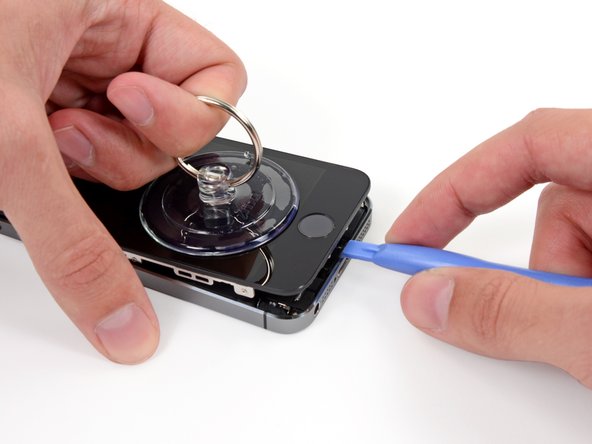






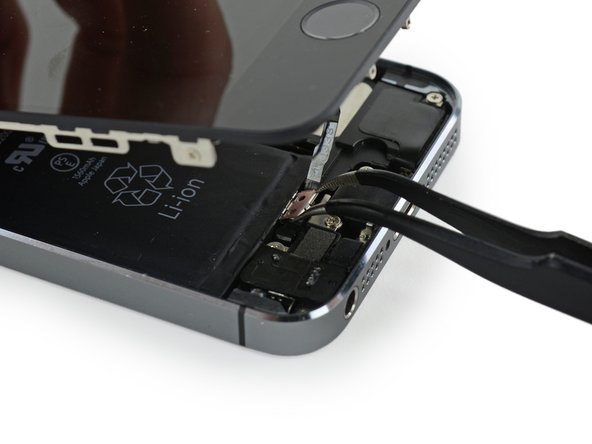









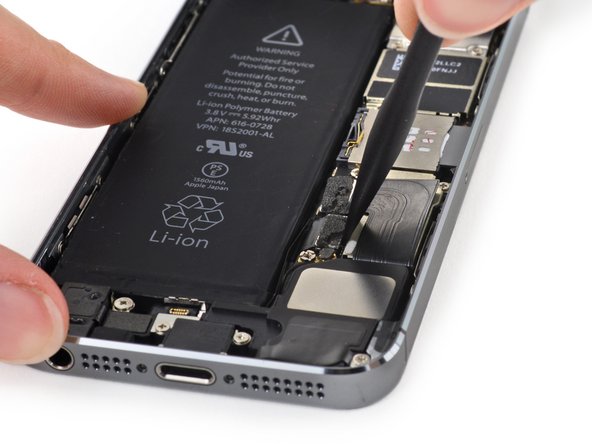

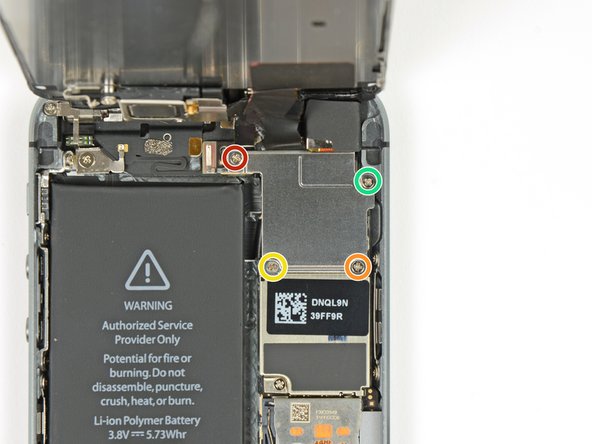



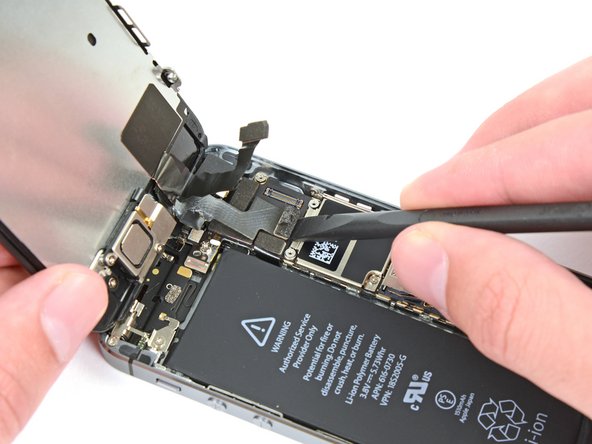




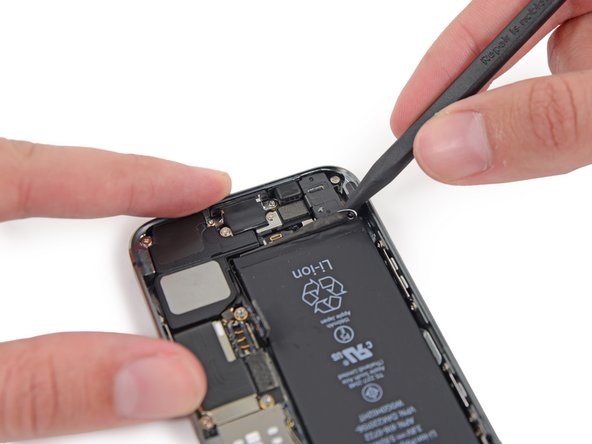











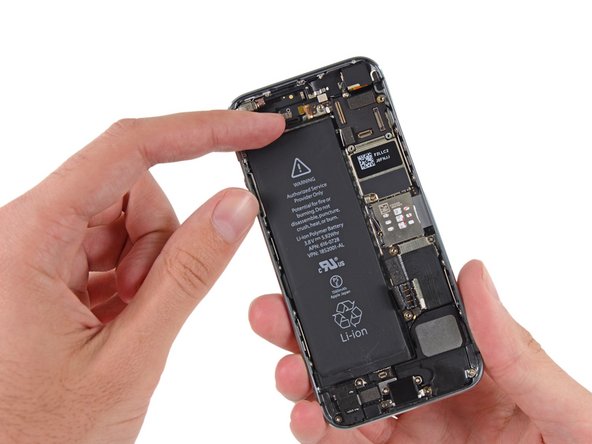


0 Response to "How To Get A Replacement Iphone 5s"
Post a Comment